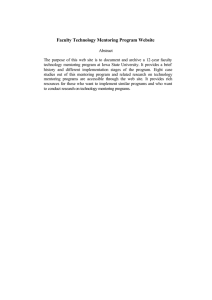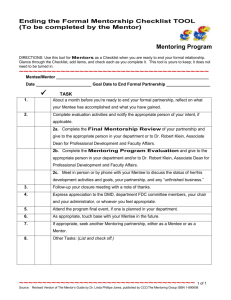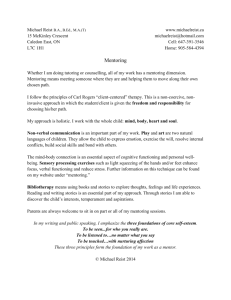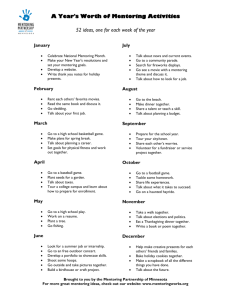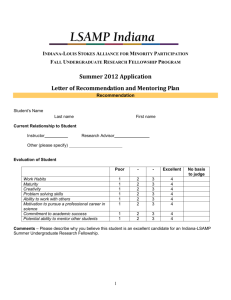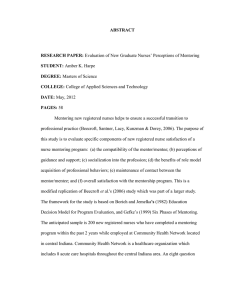Youth Orientation Checklist - Institute for Youth Success at
advertisement
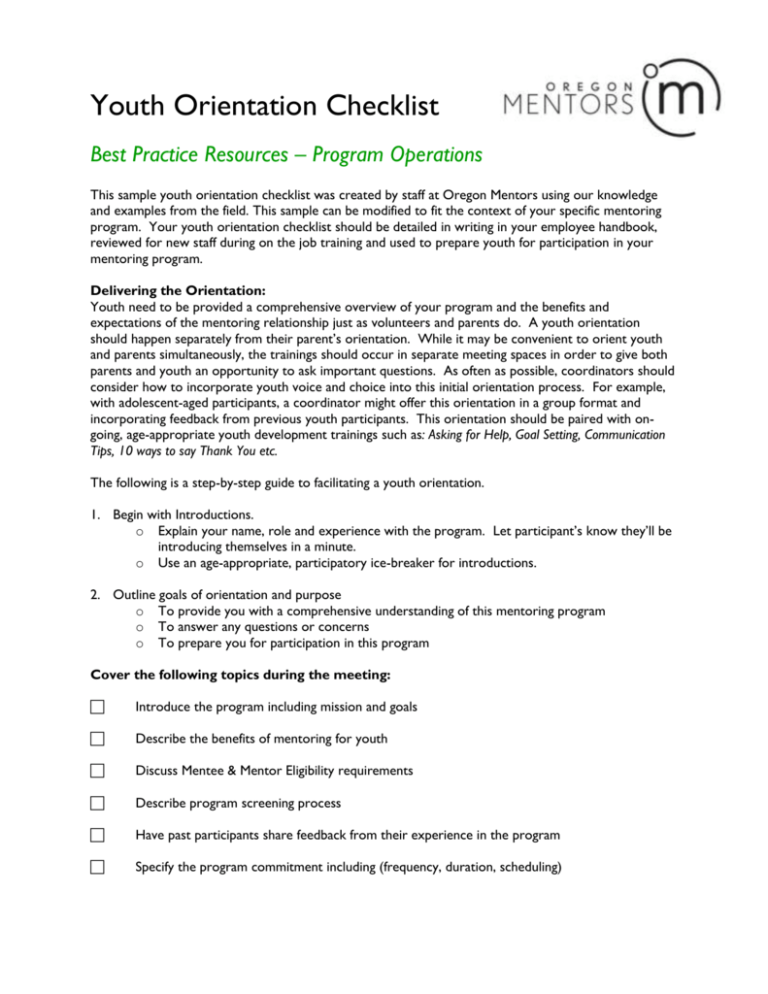
Youth Orientation Checklist Best Practice Resources – Program Operations This sample youth orientation checklist was created by staff at Oregon Mentors using our knowledge and examples from the field. This sample can be modified to fit the context of your specific mentoring program. Your youth orientation checklist should be detailed in writing in your employee handbook, reviewed for new staff during on the job training and used to prepare youth for participation in your mentoring program. Delivering the Orientation: Youth need to be provided a comprehensive overview of your program and the benefits and expectations of the mentoring relationship just as volunteers and parents do. A youth orientation should happen separately from their parent’s orientation. While it may be convenient to orient youth and parents simultaneously, the trainings should occur in separate meeting spaces in order to give both parents and youth an opportunity to ask important questions. As often as possible, coordinators should consider how to incorporate youth voice and choice into this initial orientation process. For example, with adolescent-aged participants, a coordinator might offer this orientation in a group format and incorporating feedback from previous youth participants. This orientation should be paired with ongoing, age-appropriate youth development trainings such as: Asking for Help, Goal Setting, Communication Tips, 10 ways to say Thank You etc. The following is a step-by-step guide to facilitating a youth orientation. 1. Begin with Introductions. o Explain your name, role and experience with the program. Let participant’s know they’ll be introducing themselves in a minute. o Use an age-appropriate, participatory ice-breaker for introductions. 2. Outline goals of orientation and purpose o To provide you with a comprehensive understanding of this mentoring program o To answer any questions or concerns o To prepare you for participation in this program Cover the following topics during the meeting: Introduce the program including mission and goals Describe the benefits of mentoring for youth Discuss Mentee & Mentor Eligibility requirements Describe program screening process Have past participants share feedback from their experience in the program Specify the program commitment including (frequency, duration, scheduling) Outline the role of a mentor Describe stages of the Mentoring Relationship Review program policies and procedures o Communication o Confidentiality o Grievances o Mandatory Reporting o Meeting guidelines o Missing a meeting o Safe Touch o Social Media o Relationship closure How to Prepare for the First Meeting Q&A Paperwork completion such as: o Youth intake application o Youth Handbook o About Me o Consent to Evaluate o Youth Participation Agreement Provide youth with a current program newsletter and activity calendar and appropriate program contact information


